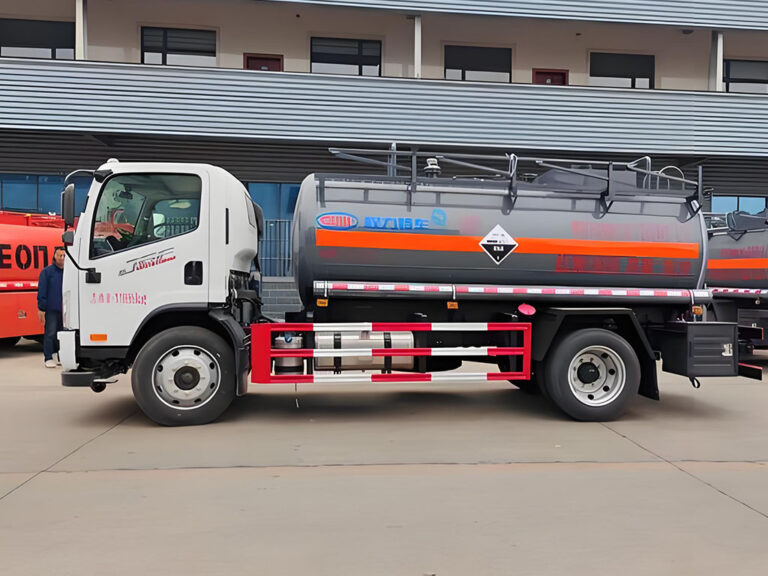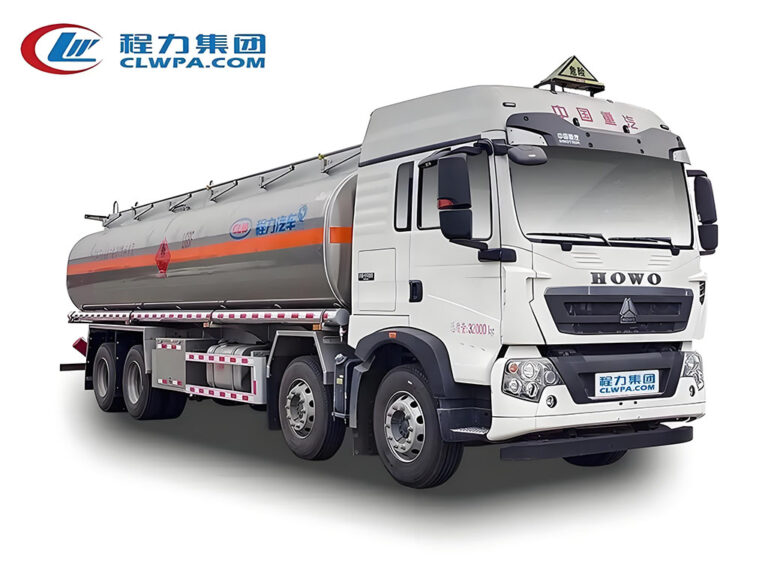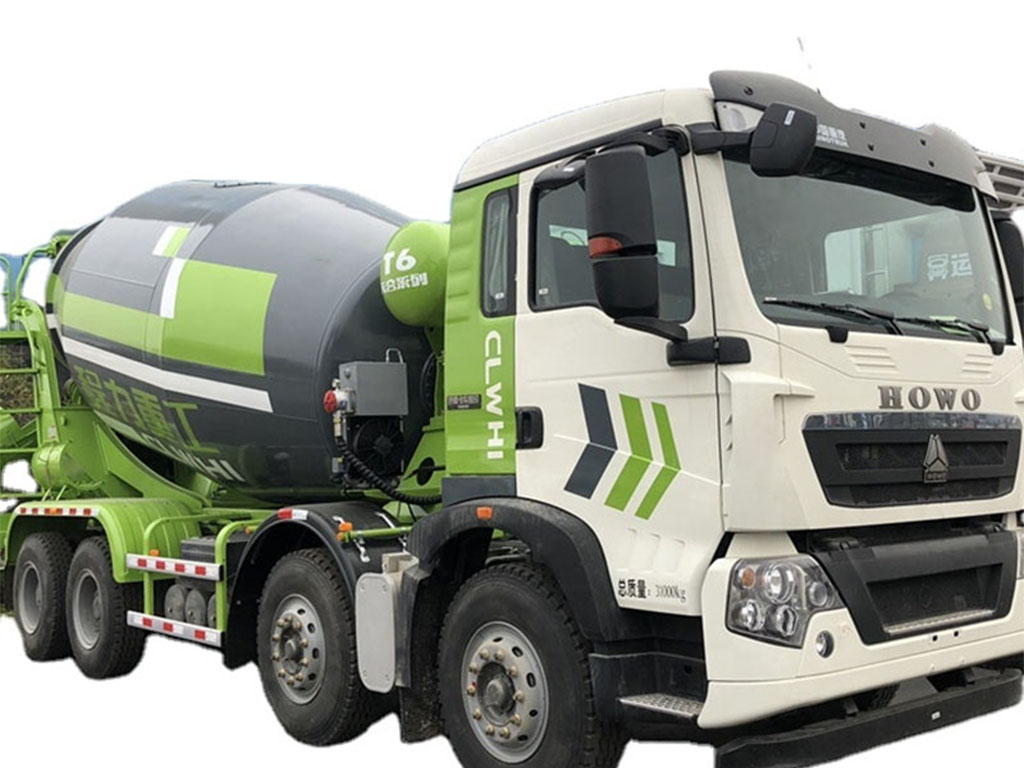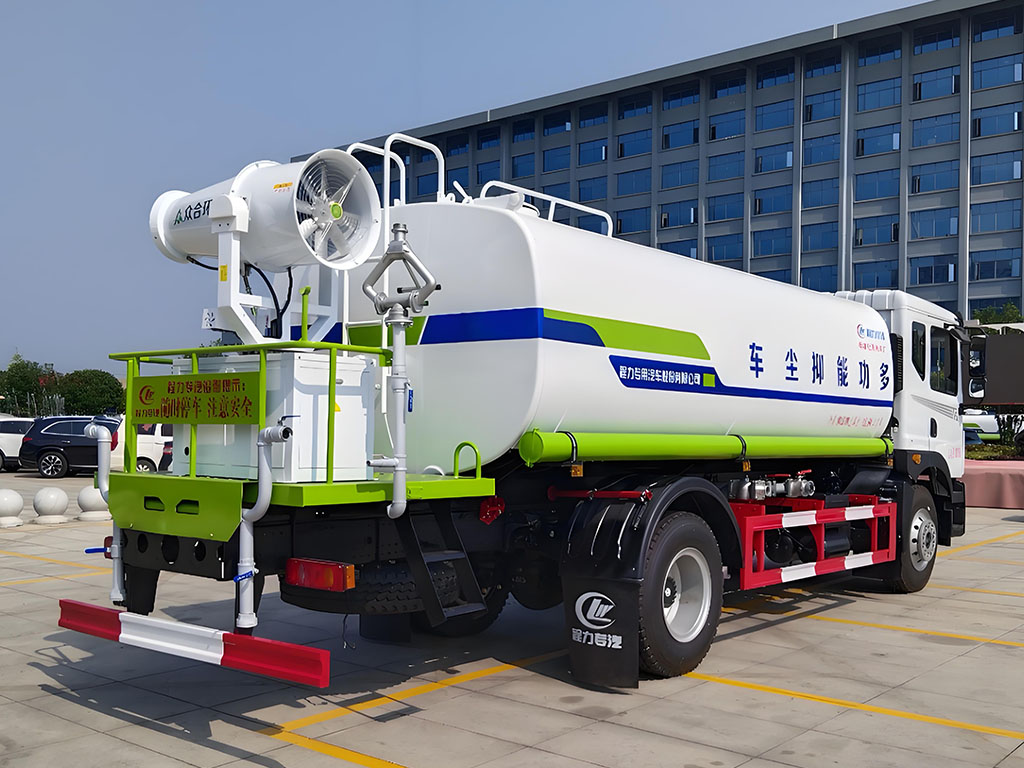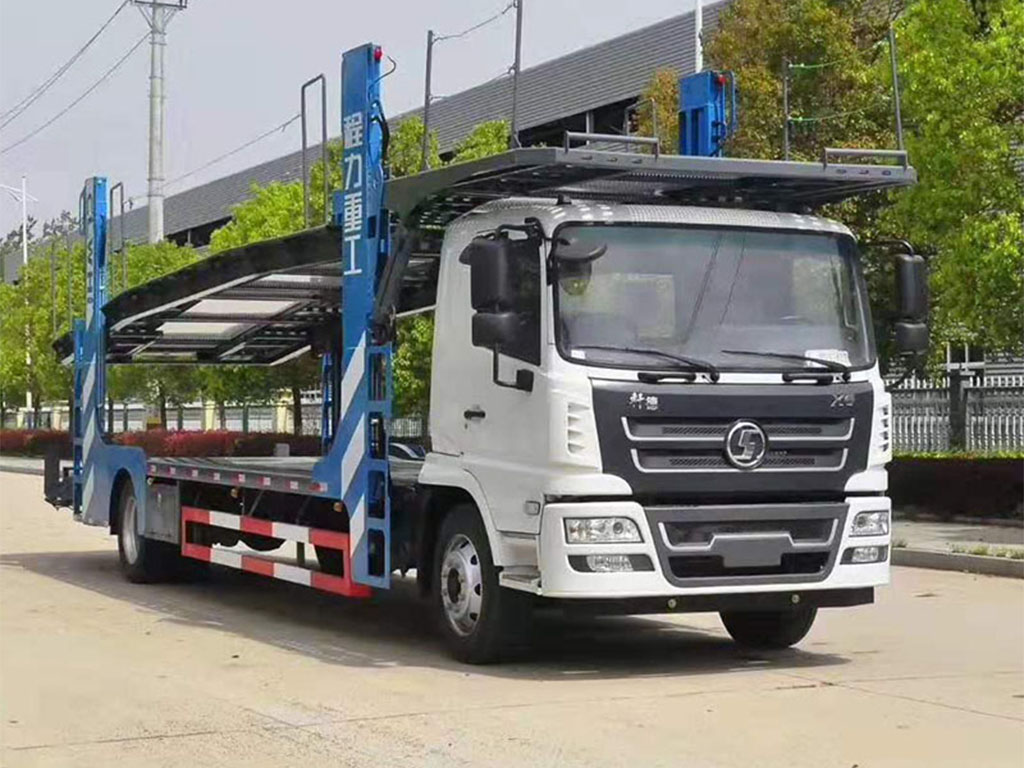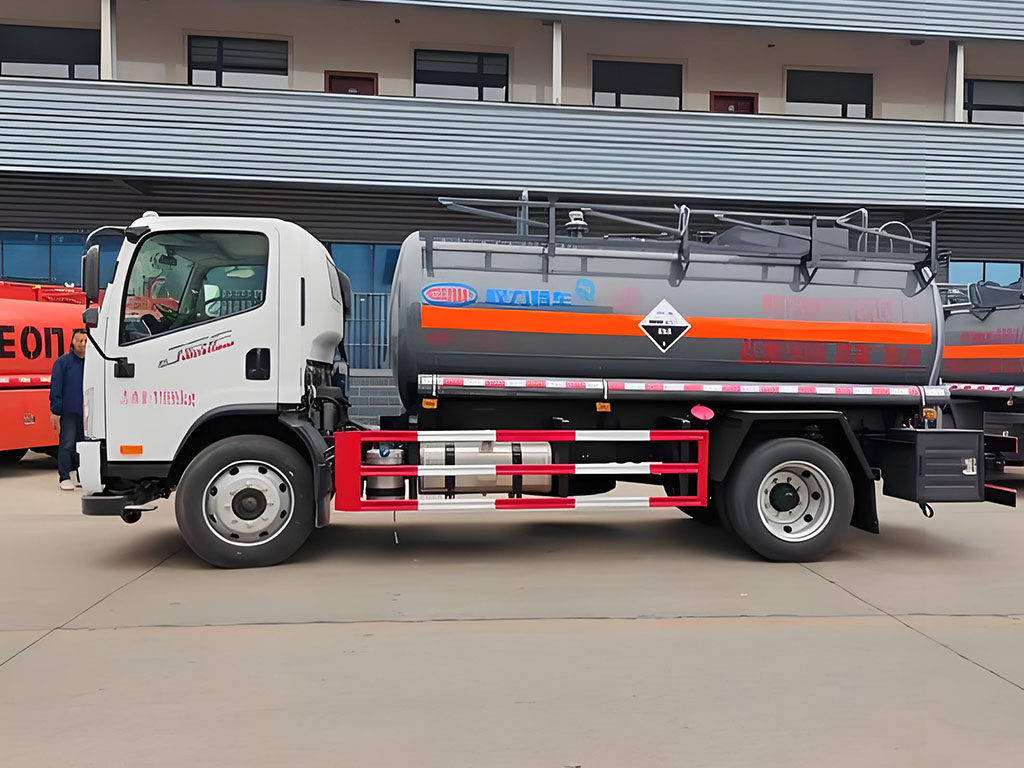-
Parc industriel automobile de Chengli, Suizhou, Hubei, Chine
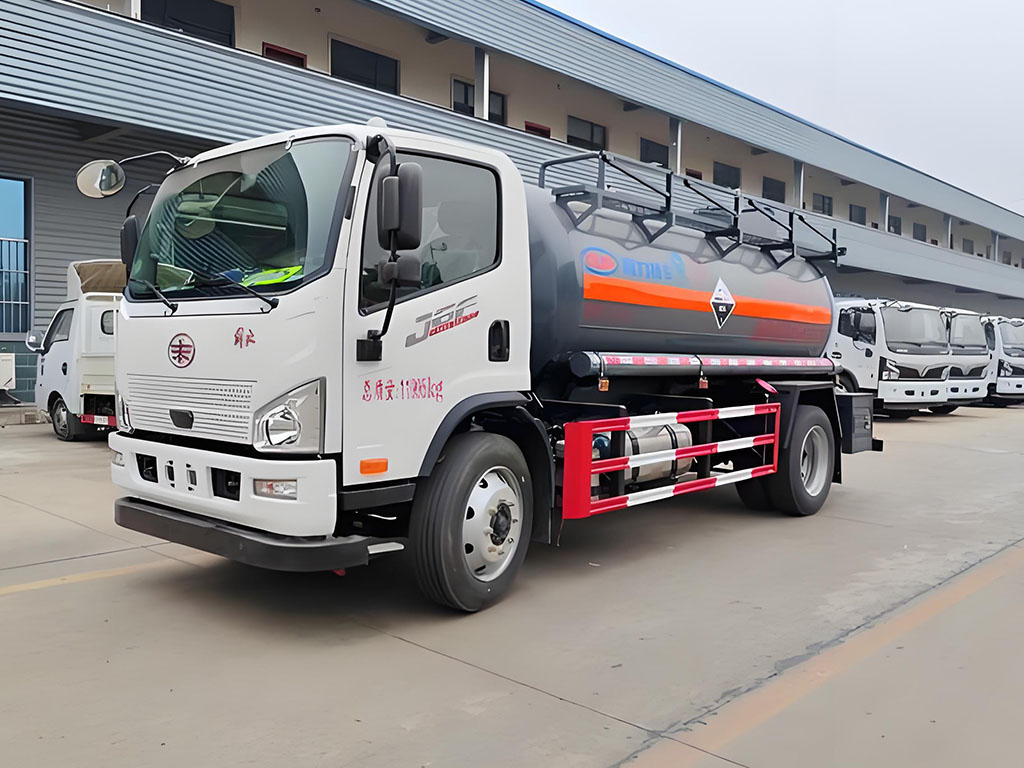
Tanker Fuel Compatibility: The Critical Need to Support Multiple Aviation Fuels for a Sustainable Future
The Sky Is Changing. Are Your Fuel Tankers Ready?
You run a big airport. Jets land. They need fuel. But not all jets use the same fuel anymore. Some need Jet A-1. Others need Jet A. Small planes want Avgas 100LL. New green planes need Sustainable Aviation Fuel ou SAF.
What if your camion-citerne can’t carry all these fuels? What if fuels mix? Engines break. Planes don’t fly. Your airport loses money. Pilots lose trust. This is a real problem right now.
Le carburant pour l'aviation world is growing fast. We see biofuels in aviation. We see synthetic aviation fuels. We see alternative aviation fuels comme hydrogen aviation fuel et electric aviation fuel. Each fuel type needs special care. Each one has different needs.
Aviation fuel compatibility isn’t just nice to have. It’s a must. Your fuel transport aviation systems must work with many fuels at once. Your tanker design must keep fuels pure. Your team must know how to handle each type safely.
À GROUPE CLW, we build trucks that solve these problems. We’re a constructeur automobile professionnel. We make custom trucks. We deliver them to you. We provide après-vente help and services de conseil technique. We know what you need because we’ve built thousands of camions spéciaux for clients worldwide.
The Evolving Landscape of Aviation Fuels
Traditional Jet Fuels Keep Flying
For years, most jets burned two main fuels. Jet A-1 flies around the world. It works in cold weather. Jet A is common in the U.S. Both are turbine engine fuel types. They power big commercial aviation planes. They fuel cargo airline jets. They keep the sky moving.
These conventional aviation fuels set the rules. The ASTM International group writes standards. The SAE International group does too. The ISO creates global rules. Everyone follows these aviation fuel standards to stay safe.
Aviation Gasoline Serves Small Planes
General aviation uses different fuel. Small planes with piston engines need Aviation Gasoline ou Échappement. The most common type is Avgas 100LL. The “LL” means “low lead.” It has less lead than old fuels but still some.
Now we see Avgas 82UL coming. “UL” means “unleaded.” It’s cleaner. Better for the earth. Safer for people. But it requires different fuel handling aviation methods.
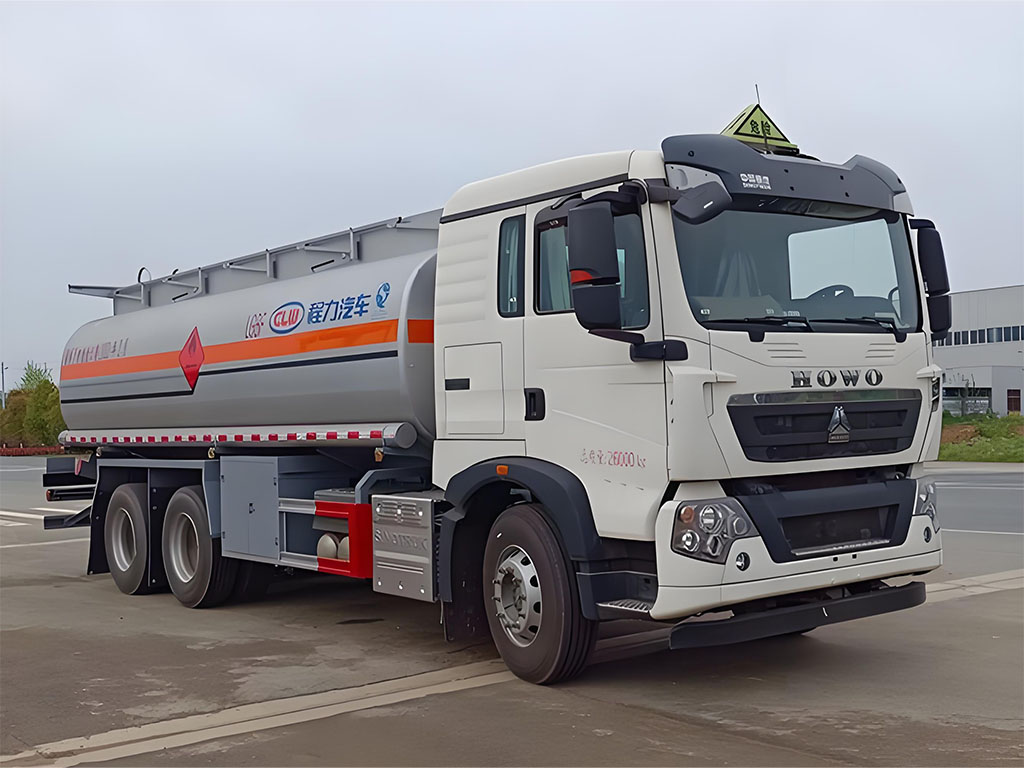
The Rise of Sustainable Aviation Fuels Changes Everything
Here’s where things get exciting and complex. Sustainable Aviation Fuel ou SAF is growing fast. Why? The world wants decarbonization aviation. We need net-zero aviation by 2050. SAF helps us get there.
SAF isn’t just one fuel. It’s many types:
- HEFA-SPK (that’s Hydroprocessed Esters and Fatty Acids – Synthetic Paraffinic Kerosene)
- Alcohol-to-Jet ou ATJ fuels
- Fischer-Tropsch kerosene ou FT kerosene
- Power-to-Liquid fuels ou PtL fuels
- Bio-kerosene from plants
- Biodiesel in aviation (still being tested)
- Renewable diesel aviation options
Ce sont drop-in aviation fuels. That means they can blend with regular jet fuel. But here’s the catch: they still need careful handling. Fuel blending aviation must be precise. Fuel blending ratios must be exact. Fuel blending limits must be respected.
Emerging Alternatives Add More Complexity
Beyond SAF, we see even newer ideas. Hydrogen fuel cells for planes. Electric propulsion systems. While these aren’t traditional fuels, they change our aviation fuel infrastructure. They require new fuel storage aviation and new transport de carburant systems.
Le future of aviation fuels is diverse. The next-generation aviation fuels will be many, not one. Your opérations de ravitaillement must adapt now.
Why Tanker Fuel Compatibility Is Non-Negotiable
Preventing Fuel Contamination Saves Lives
Mix the wrong fuels and disaster strikes. Fuel contamination aviation kills engines. It causes crashes. It ends lives.
Different fuels have different chemical makeups. Jet fuel compatibility isn’t automatic. Échappement in a jet engine? The engine fails. Diesel aviation fuel in the wrong plane? Big problems.
Fuel adulteration aviation can happen by accident. A tanker carries Jet A one day. The next day it carries SAF. If you don’t clean it right, fuels mix. This is called cross-contamination. The risks are huge.
Fuel adulteration risks include:
- Engine failure mid-flight
- System breakdowns
- Safety emergencies
- Legal liability
- Lost business
Fuel adulteration prevention must be your top goal. Fuel adulteration detection systems help, but prevention is better.
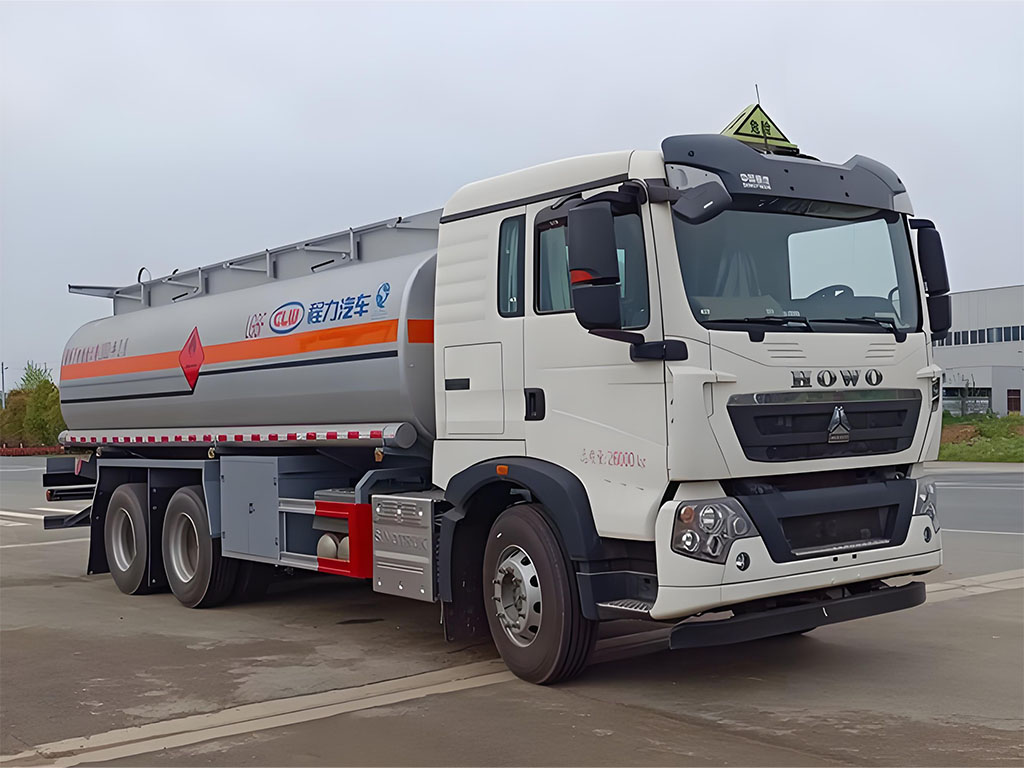
Material Compatibility Protects Your Investment
Different fuels attack different materials. Seals that work with Jet A-1 might fail with SAF. Gaskets rated for Échappement might crack with biofuels. Tuyaux approved for one fuel might leak with another.
Il s'agit de material compatibility aviation in action. Your fuel tank compatibility matters. Your fuel line compatibility matters. Your fuel pump compatibility matters.
When seals fail, fuel leaks. When gaskets crack, contamination enters. When tuyaux rupture, fires start. The cost of fuel incompatibility is measured in repairs, downtime, and sometimes lives.
Engine compatibility aviation goes deeper. Engine manufacturers comme GE Aviation, Rolls-Royce, et Pratt & Whitney test fuels rigorously. They approve certain aviation fuel types for their engines. Use the wrong one and you void warranties. You risk the turbine engine ou piston engine.
Aircraft manufacturers comme Boeing et Airbus publish strict aircraft fuel specifications. Follow them or face problems.
Quality Standards Keep Everyone Safe
ASTM fuel standards, SAE fuel standards, et ISO fuel standards exist for good reasons. They ensure contrôle de la qualité du carburant. They enable fuel certification aviation.
Regulatory compliance aviation fuel isn’t optional. The FAA (Federal Aviation Administration) in the U.S. enforces rules. EASA (European Union Aviation Safety Agency) does the same in Europe. IATA (International Air Transport Association) sets global guidelines.
Fuel certification proves your fuel is pure. Fuel testing aviation confirms it meets specs. Fuel analysis aviation catches problems early.
When you skip contrôle de la qualité du carburant, you face:
- Regulatory fines
- Grounded aircraft
- Cancelled flights
- Clients en colère
- Damaged reputation
Implications of non-compliance can shut down your operation.
Operational Efficiency Saves Money
Bien tanker fuel compatibility speeds up work. Refueling operations go faster. Ground fuel services run smoother. Aircraft performance fuel stays optimal.
Bad compatibility causes delays. You must drain tanks. Clean systems. Test fuel. Retest. Wait for approvals. All this costs time and money.
Streamlining refueling operations boosts profits. Avoiding costly downtime and repairs protects your budget.
Challenges in Achieving Multi-Fuel Tanker Compatibility
Infrastructure Takes Big Investment
Old tankers weren’t built for fuel diversity. Making them work with multiple aviation fuels requires changes.
Tanker design and materials must be compatible with all fuels. That means:
- Tanks lined with resistant coatings
- Pumping and transfer systems that handle different viscosities
- Filters that work for all fuel types
- Monitoring systems that detect contamination
Segregation and cross-contamination prevention requires physical barriers. Some companies use dedicated tanker systems for each fuel. But that’s expensive. You need more trucks. More storage. More space.
À GROUPE CLW, we design production sur mesure trucks. Our usine de camions spéciaux builds tankers that can handle multiple fuels safely. We use advanced materials. We install smart monitoring. We test everything before delivery.
Just like our camion-citerne à eau designs ensure potable water stays pure, our fuel tankers keep aviation fuels uncontaminated.
Training Personnel Takes Time
Your crew must understand each fuel type. They need training in:
- Handling different fuel types safely
- Recognizing and responding to incompatibility issues rapidement
- Proper fuel handling aviation procedures
- Emergency response protocols
Training and personnel competency isn’t a one-time thing. Continuous professional development keeps skills sharp. Comprehensive fuel handling certifications prove competence.
Without proper training, mistakes happen. And mistakes with aviation fuel are deadly.
Regulations Keep Changing
Evolving standards for SAFs create uncertainty. What’s approved today might change tomorrow. Global adoption of new fuel handling protocols isn’t synchronized.
One country approves a SAF blend. Another doesn’t. You fly international routes? You need to know every region’s rules.
Regulatory hurdles and harmonization slow progress. Aviation fuel policy varies by nation. Harmonization of fuel standards would help, but we’re not there yet.
Supply Chains Get Complex
Managing diverse fuel streams challenges logistics. Your fuel supplier (comme Shell Aviation, ExxonMobil Aviation, ou BP Aviation) might offer many fuels. But getting them to your airport requires planning.
Global aviation fuel supply chains are intricate. Aviation fuel logistics involve:
- Production facilities
- Storage depots
- Transport tankers (trucks, trains, ships)
- Airport storage
- Refueling trucks
- Aircraft tanks
Ensuring purity from source to aircraft requires tracking. Traceability and documentation at every step. One break in the chain and contamination enters.
Supply chain complexity and logistics multiply when you handle five or six fuel types instead of one.

Solutions and Best Practices for Multi-Fuel Tanker Operations
Advanced Tanker Design Solves Problems
Modern aviation fuel tankers use technology to stay compatible. Smart monitoring and purity verification systems check fuel constantly. Sensors detect contamination immediately. Automated shutoffs prevent mixing.
Advanced tanker design and technology includes:
- Separate compartments for each fuel
- Color-coded connections
- Automated documentation systems
- suivi GPS
- Real-time fuel quality monitoring
Some operators choose dedicated tanker systems. One truck for Jet A-1. Another for SAF. A third for Échappement. This eliminates mixing risk but costs more.
A smarter approach? Design one tanker that safely carries multiple fuels with proper segregation. That’s what we do at GROUPE CLW. Notre livraison de véhicules includes full training on the segregation systems.
Robust Testing Catches Issues Early
In-line and on-site testing detects problems before fuel reaches aircraft. Test at the source. Test during transport. Test before pumping.
Fuel testing aviation methods include:
- Visual inspection
- Chemical analysis
- Contamination detection
- Specification verification
Fuel analysis aviation labs can be portable now. You don’t need to send samples away. Test results come in minutes, not days.
Traceability and documentation creates an audit trail. If problems appear, you can track them back to the source.
Collaboration Builds Better Systems
No single company solves this alone. Collaboration across the aviation ecosystem brings together:
- Aircraft manufacturers
- Engine makers
- Fuel suppliers
- Airport authorities
- Refueling companies
- Industry standards bodies
- Regulatory agencies
When Boeing works with Shell Aviation et le FAA, better standards emerge. When Airbus partners with EASA and fuel suppliers, safety improves.
En tant que constructeur automobile professionnel, we at GROUPE CLW participate in industry discussions. We consult with fuel companies. We understand engine manufacturer specifications. We build tankers that meet everyone’s needs.
Education Never Stops
Training and education programs must be ongoing. Fuel lifecycle management includes people development.
Invest in comprehensive fuel handling certifications for your team. Send them to continuous professional development courses. Keep them updated on aviation fuel innovation.
Le aerospace industry fuel sector changes fast. What worked last year might not work this year. Stay current or fall behind.
The Future of Aviation Fuel Tankers in a Decarbonized Era
SAF Blends Will Dominate
SAF certification is expanding. More SAF production methods come online. SAF availability increases each year.
Right now, most SAF blends with regular jet fuel at 10% to 50%. But pure SAF (100%) is being tested. Adapting to SAF blends and pure SAFs requires tanker flexibility.
Your tankers must handle today’s blends and tomorrow’s pure SAF. Plan ahead.
New Fuels Will Emerge
Preparing for future fuel innovations means staying flexible. Future fuel requirements aviation will include fuels we haven’t invented yet.
Aviation fuel challenges are also aviation fuel opportunities. Early adopters gain competitive advantage. Companies that can handle any fuel type win more business.
Tankers Enable Net-Zero Aviation
The role of tankers in a net-zero aviation future is critical. Without proper fuel transport aviation, sustainable aviation fuel can’t reach aircraft. Without compatible tankers, the decarbonization aviation movement stalls.
Ton ground fuel services make or break the green aviation revolution. Your airport refueling challenges must be solved now.
Global fuel infrastructure development depends on tanker trucks that work. Aviation fuel infrastructure starts at the ground level with vehicles.
Our Solution: CLW GROUP’s Multi-Fuel Compatible Tankers
We understand these challenges because we live them. At GROUPE CLW, we’ve spent years perfecting tanker design. We build trucks for the commercial aviation, military aviation, et general aviation sectors.
Our tankers feature:
| Fonctionnalité | Avantage |
|---|---|
| Multi-compartment design | Carry several fuel types safely |
| Advanced seal materials | Compatible with conventional and SAF fuels |
| Smart monitoring systems | Real-time contamination detection |
| Precision pumping | Précis fuel blending ratios |
| Easy cleaning protocols | Fast turnaround between fuel types |
| Full documentation | Meet all regulatory compliance aviation fuel besoins |
Nous ne vendons pas seulement des camions. Nous fournissons production sur mesure matched to your exact needs. Need to serve regional airline fuel operations? We configure for that. Supporting long-haul aviation fuel at a major hub? We build for that too.
Notre après-vente support includes training your team. Our services de conseil technique help you optimize fuel handling procedures. We’re your partner, not just your vendor.
Just as our other specialized vehicles like the camion malaxeur à ciment keep materials pure and properly mixed, our fuel tankers maintain the integrity of every fuel type.
Why Choose CLW GROUP for Your Aviation Fuel Tankers?
Expérience : We’ve built thousands of specialized trucks. We understand liquid transport like few others.
Expertise : Our engineering team studies aviation fuel standards constantly. We design to ASTM, SAE, et ISO specifications.
Qualité : Every tanker undergoes rigorous fuel system maintenance checks before delivery. We test fuel pump compatibility, fuel line compatibility, et tout material compatibility aviation factors.
Soutien : De livraison de véhicules through years of service, we’re with you. Need parts? We have them. Need advice? We provide it. Need services de conseil technique? That’s included.
Customization: Your operation is unique. We offer production sur mesure to match your exact requirements. Capacity, compartments, pumping systems, monitoring technology – we configure everything to your specs.
The Investment That Protects Your Future
Yes, advanced aviation fuel tankers cost more upfront. But consider the alternative costs:
- Fuel degradation aviation from contamination
- Engine damage from incompatible fuels
- Regulatory fines from non-compliance
- Lost revenue from grounded aircraft
- Reputation damage from safety incidents
- Costly downtime and repairs
Le cost of fuel incompatibility far exceeds the investment in proper equipment.
Aviation fuel investment in quality tankers pays back through:
- Plus rapide opérations de ravitaillement
- Fewer errors and incidents
- Mieux fuel efficiency aviation
- Extended equipment life
- Satisfied customers
- Regulatory compliance
- Competitive advantage
Act Now to Stay Ahead
Le aviation fuel transition is happening now. Future of aviation fuels won’t wait for you to catch up. Your competitors are upgrading. Your customers expect compatibility with new fuels.
Environmental impact aviation fuel concerns drive change. Net-zero emissions targets are real. Airlines commit to SAF. Regulations tighten. The global aviation fuel supply shifts toward sustainability.
Will your tankers be ready? Or will you scramble to adapt?
À GROUPE CLW, we’re ready to help. Contact us today. Let’s discuss your fuel transport aviation needs. We’ll design the perfect tanker system for your operation.
Notre usine de camions spéciaux has the capacity and expertise you need. We deliver worldwide. We support every vehicle we build.
Conclusion: Embracing Compatibility for a Greener Sky
Tanker fuel compatibility isn’t just a technical requirement. It’s the foundation of safe, efficient, sustainable aviation. As aviation fuel types multiply, your equipment must adapt.
Multiple aviation fuels are here to stay. Jet A-1, Jet A, Échappement, SAF blends, and future fuel innovations all need proper handling. Your tankers must support this diversity without compromise.
Le aviation industry depends on fuel suppliers who get it right every time. Airport authorities need reliable ground fuel services. Airlines need aircraft performance they can trust.
À GROUPE CLW, we build the tankers that make this possible. Our constructeur automobile professionnel credentials prove our capability. Our thousands of satisfied customers prove our reliability.
Don’t let outdated equipment limit your business. Don’t risk safety with incompatible tankers. Don’t miss opportunities in the growing SAF market.
Choisir GROUPE CLW. Choose compatibility. Choose the future.
Contact us today for a customized tanker solution that supports all your aviation fuel needs.
Références :
- ASTM International Standards for Aviation Fuels
- International Air Transport Association (IATA) Fuel Quality Guidelines
- Federal Aviation Administration (FAA) Fuel Compatibility Requirements
- European Union Aviation Safety Agency (EASA) Regulations
- SAE International Aerospace Standards
CLW GROUP: Your Partner in Specialized Vehicle Manufacturing. From design to delivery, from installation to support, we’re with you every step of the way.



